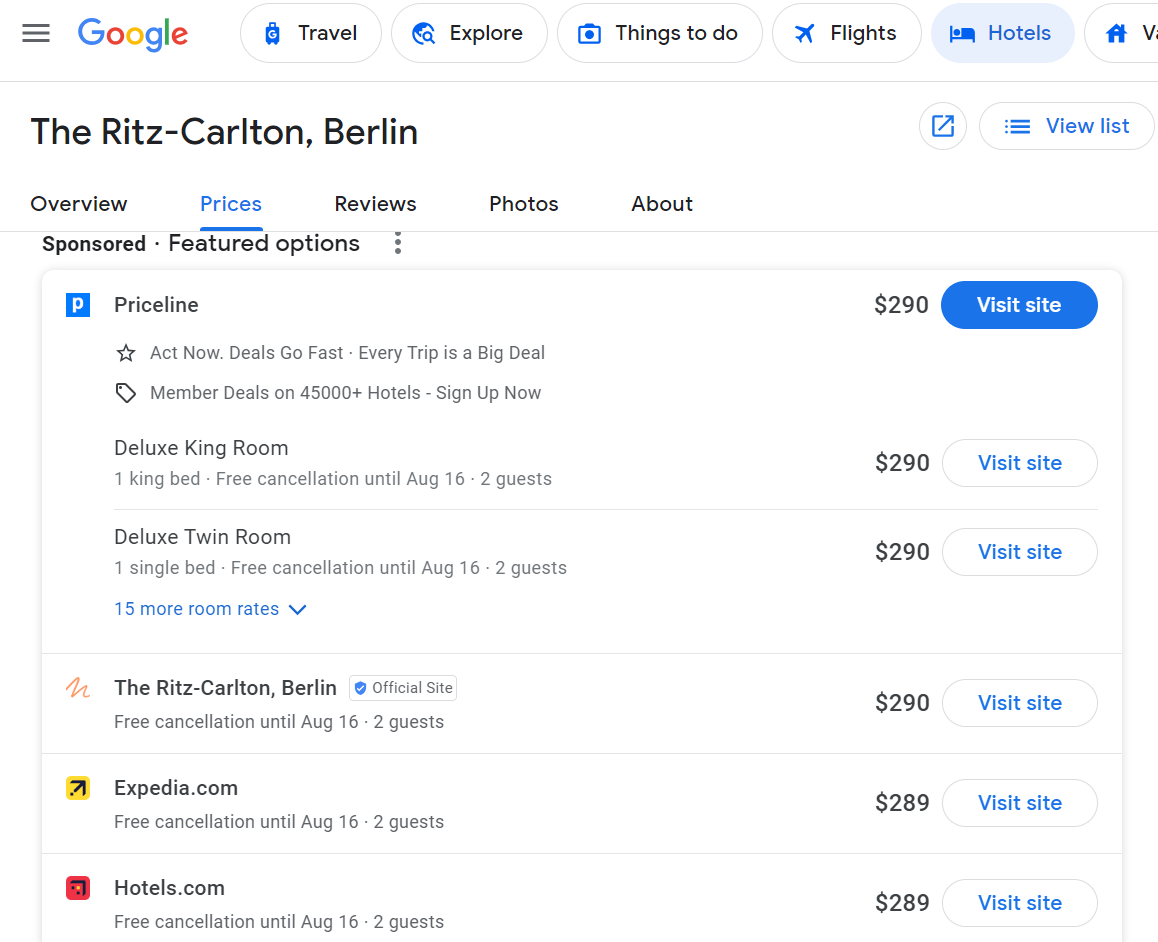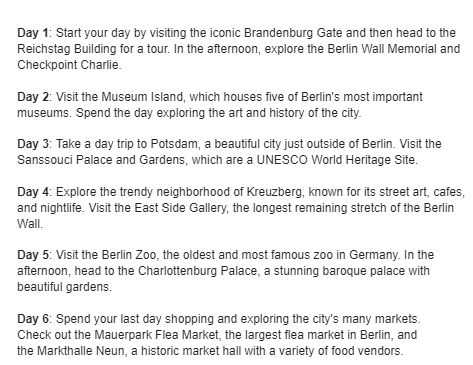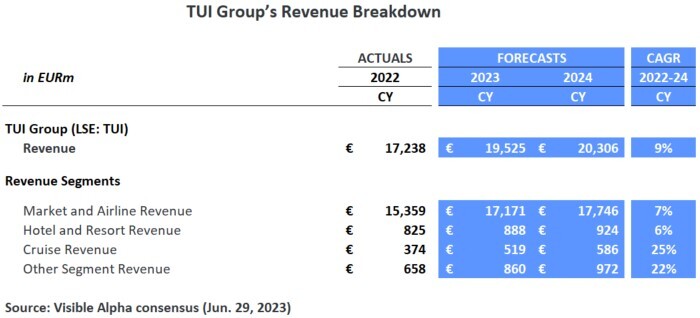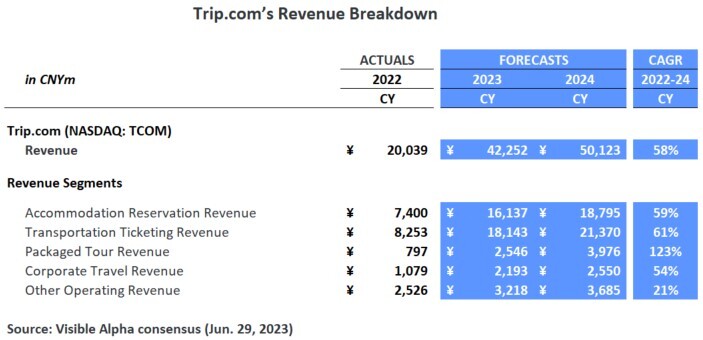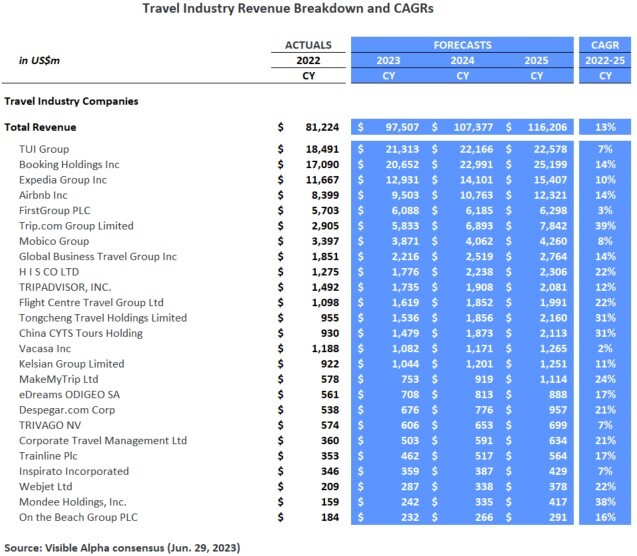AI and customer impact
The integration of generative AI presents significant opportunities for companies to get their products and services more quickly in front of customers that are actively looking to purchase. AI innovations may create an increasingly competitive search environment, as companies seek to optimize ad spend and ROI by targeting more specific segments with a curated offering aligned to customer interests.
Generative AI chatbots, like ChatGPT, expand the capabilities of what software can do by synthesizing business processes and integrating customer questions and needs into a workflow solution. Chatbots may emerge as a valuable and impactful way both to retain existing consumers and to pinpoint new customers. As these chatbots potentially evolve into virtual assistants, the monetization model of search, ads, and traffic may be disrupted.
Travel and AI
Online travel appears to be an ideal area for the innovations from AI to take hold and have a positive impact on revenues.
Figure 1: AI in Bing for travel
Source: Bing.com (June 28, 2023)
Travel-related searches in Bing and Google surface Expedia-sponsored recommendations at the top of search results list. However, further searches for flights and other travel services help users pinpoint the cheapest airfares in a region or country or for a specific time period, but then send the user to a different site away from Expedia to make the purchase.
For example, a user may search Google for “last minute flights to Europe” and discover a low-priced fare to Berlin, which may be purchased directly from the airline, e.g., united.com. Then, the customer searches in Google again to discover a hotel. In this case, the Berlin Ritz-Carlton could be booked through the official site or through various booking sites, like Priceline or Expedia, but with no meaningful price difference.
How can ChatGPT help online travel companies cross-sell and keep their customers spending within their site?
Figure 2: Hotel price comparisons in Google
Source: Google.com (June 27, 2023)
Expedia’s new ChatGPT bot and loyalty program
In Expedia’s (NASDAQ: EXPE) Q1 earnings call on May 4, 2023, CEO Peter Kern highlighted the company’s commitment to deploying AI and machine learning to the product “to enhance the customer experience and move towards Expedia’s North Star of true personalization.” The company has already launched the Expedia plug-in for ChatGPT, as well as ChatGPT in the Expedia iOS app. Expedia will also launch its loyalty program, One Key, in the U.S. in July and later this year globally, across its main brands.
According to Visible Alpha consensus, analysts are currently expecting Expedia to see its operating profit margin improve from 9% in 2022 to 15% by 2027. Excluding stock-based compensation, this margin improvement is driven by a 200-basis-point decline in selling/marketing costs and a 100-basis-point reduction in both technology/content and general/administrative costs as a percentage of revenue. We are watching the role that AI will play in both driving sales growth and supporting these cost reductions.
Figure 3: Expedia’s revenue breakdown
ChatGPT can help synthesize data and may encourage consumers to skip conducting multiple searches in one of the search engines and then switching to another site or application. If the customer books the Ritz-Carlton in Berlin through Expedia or a house through Expedia’s VRBO, they can leverage the ChatGPT plug-in available on the Expedia app for further details, but will not be linked directly to actually make reservations. Airbnb (NASDAQ: ABNB) will also integrate ChatGPT from next year, but will not have a loyalty program. The combination of ChatGPT and loyalty programs may incentivize consumers to book more parts of their trip within specific applications.
Visible Alpha tried out Expedia’s new ChatGPT capability in iOS. Within seconds, ChatGPT returned a detailed 6-day itinerary for a trip to Berlin. Excursions can then be purchased directly on Expedia in “Things to Do,” removing the need to return to Google or Bing to search for ideas and then be rerouted to another site to book the travel experience. ChatGPT can help companies directly offer and cross-sell more products/services to their customers. Loyalty incentive programs can then create stickiness in this evolving consumer behavior.
Figure 4: From ChatGPT on Expedia: Six days in Berlin
Generative AI to support more “experiences” bookings
Purchasing “experiences” has become an emerging growth category in the global travel industry. Leveraging its reviews and enhanced engagement, Tripadvisor’s (NASDAQ: TRIP) Viator experiences have seen strong demand that is expected to continue. According to Visible Alpha, analysts expect revenue from Viator to increase ~34% in 2023 and to reach $770+ million by the end of 2024. Trip Advisor also has plans to integrate generative AI plug-ins, which could add further upside to its Viator segment.
Figure 5: Tripadvisor’s revenue breakdown
Booking Holdings’ (NASDAQ: BKNG) Kayak enables add-ons of experiences to its traditional air/hotel packages and is also experimenting with a generative AI plug-in. Booking’s Advertising and other revenues are expected to generate $1.1+ billion by the end of 2024.
Figure 6: Booking Holdings’ revenue breakdown
Outside of the U.S., Trip.com (NASDAQ: TCOM) and TUI Group (LSE: TUI) will also leverage AI for booking experiences. In the UK and EU markets, TUI’s experiences growth through its Musement business (Other segments) is another example of a company leveraging both loyalty and AI.
Figure 7: TUI Group’s revenue breakdown
In Asia, Trip.com is seeing a reawakening in travel post-Covid with experiences bundled into packaged tours, showing a very strong rebound in expected growth in 2024.
Figure 8: Trip.com’s revenue breakdown
Industry summary
By the end of 2025, Visible Alpha’s global travel industry revenues are expected to expand by $35 billion from 2022-levels. In addition to Asia’s post-Covid reopening, generative AI tools and innovations have the potential to drive revenue growth for travel destinations and experiences.
Figure 9: Travel industry revenue breakdown and CAGRs
The bottom line
Online travel companies appear well-positioned to benefit from the integration of new generative AI plug-ins, like ChatGPT. Given the capabilities of chatbots to suggest itineraries and trip excursions, these tools may help online travel companies grow bookings from the traditional air and hotel segments, but also capture additional revenue from experiences. Loyalty programs may also play an important role in incentivizing the existing customer base to spend more within a dedicated online travel ecosystem.
The experiences segment remains an emerging category in the travel industry and could show substantial expansion longer term. Analysts expect Tripadvisor’s Viator to generate $1.2 billion in revenues by the end of 2027, up significantly from $493 million in 2022, but still small when compared to Booking’s accommodation revenue, estimated to be $25 billion by the end of 2027.
While ChatGPT provides a lot of useful information for travelers, users can not transact directly from ChatGPT. They still have to leave the ChatGPT tool to compare excursion vendors and make purchases. As ChatGPT’s capabilities advance, is the next step to link chatbot results within a site or application directly to the product offerings at sites like Viator or TUI’s Musement?


